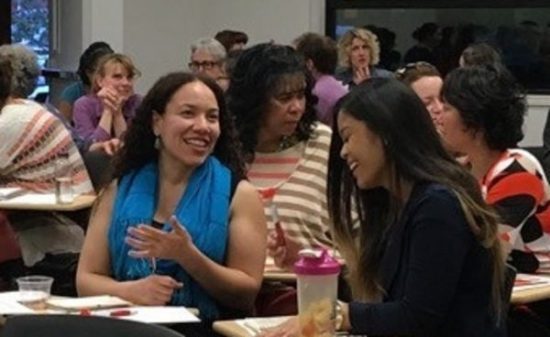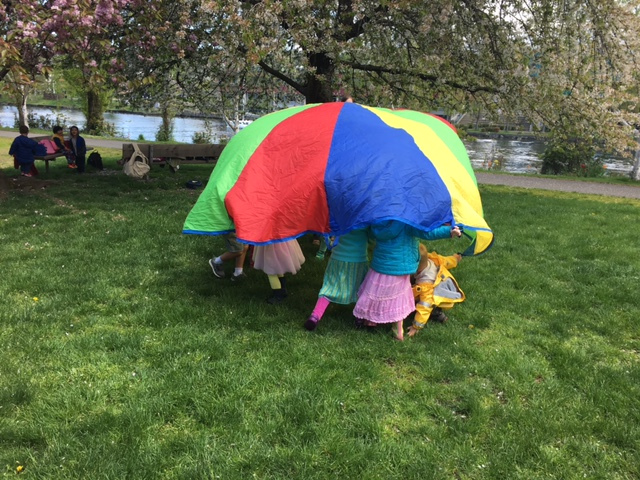
Communicating with Communities: Family Partnership
Family engagement is about going beyond a movie night, or hosting a festival or carnival. At Hilltop we believe it’s equally about creating an environment that is inclusive and representative of the families we serve, but also is one where we all embrace communication and commit ourselves to sharing values, information, and expectations for each other in support of the child.
On the 17th of October, families in River Room (a classroom at Hilltop), converged on the classroom to share food, drinks, and listen to the River Teachers yammer away about their values and intentionality in teaching. It was our first Fall Family Gathering, (in lieu of a school-wide parent night), one we hoped would provide the most information in the time we had together and hasten the development of clear, communicative partnership between parent, teacher, and classroom.
A familiar author of Hilltop blogs (check out her recent piece here), Chelsea, introduced our River Team Values. Our values (guiding principles that we develop and discuss during our professional development days) are reflective of who we are individually, as a teaching team, and what we hope to instill in our kids. This year they are:
- Community: Care-taking, anti-bias, sense of belonging, accountability, generosity, camaraderie, love, kindness
- Competence: Self-efficacy, self-awareness, regulation, freedom to make choice
- Open-mindedness: Free thinking, critical thinking, risk-taking
She explained how different decisions made off of these values are from decision based on risk-aversion, people-pleasing, maintaining calm, etc. They also may be different than those of the child’s family, and it is up to us to communicate our differences. Our pursuit of these values is expressed in the risks we invite and the critical thinking for which we reserve special time. Examples included social negotiations on our playground’s new slide, practicing self-awareness and calming during rest time, and a family partnership exploration from last year about children’s interpretation of Santa Claus.
Jacob spoke on Emergent Curriculum and Intentionality in the teaching role, calling out three common areas of confusion:
 The presence of the teacher in the emergent setting:
The presence of the teacher in the emergent setting:
Observant, unobtrusive, “backed-off,” responsive, collaborative, gradual, and present.
Enterprise Talk (courtesy of Tom Drummond):
Being aware of the nuance of language, wondering aloud vs. commanding or suggesting, refraining from asking demanding questions, telling anecdotes to inspire solutions, “gossiping” to indirectly influence behavior, changing the power dynamic, guiding children toward independent discovery.
Letting Children Make Mistakes:
Building resilience, sitting with frustration, allowing for difficult tasks, anticipating and allowing failure, scaffolding the experience of responsibility, real consequences, monitoring (not preventing) physical confrontation and play.
Michele wrapped up the evening with a selection of Tips and Tricks to help children and parents deal with daily preschool challenges and make the most out of their day. These included:
- Establishing consistent routines around pickup and drop-off, keeping in mind the times of day that work well for their children, and following through on agreements. Also, signaling teachers for support when needed.
- Partnering with teachers to make the classroom “machine” function. Putting on nap sheets, stocking extra clothes, applying sunscreen in the summer, and keeping kids home when they are sick.
- Standing by classroom agreements like the one stuffy from home rule and our expectations around nap time. Making a commitment to read and respond to documentation, bringing ideas and questions to teachers, and keeping up with their child about their school experience.
- Letting children be responsible for their own clothes, food, and hygiene – setting them up for success by sending them with manageable accessories.
The gathering was over a month ago, but we’re already seeing an impact as parents take into account this information and try out new approaches. We hope as we share our values with you, you’re able to take away ideas to develop and foster a better, more inclusive family-school partnership in your own communities.
